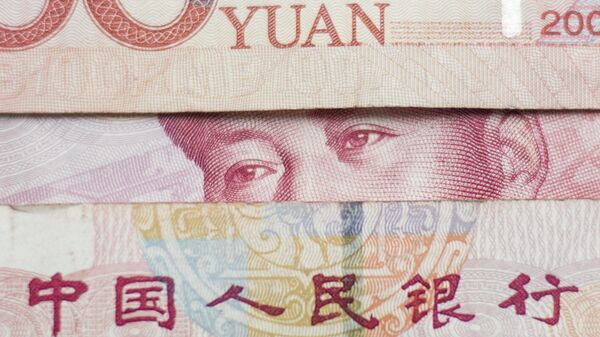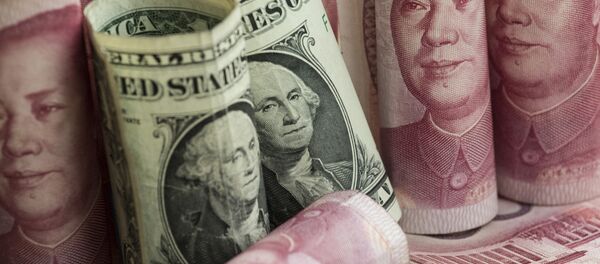The Chinese renmenbi is now a mainstay of London's financial community, one of the world's biggest, with turnover from the currency jumping 17 percent in 2018, new data from the Bank of England revealed on Tuesday.
London is still the largest Forex trading centre in the world at $2.6tn in trade every day by October 2018, up 10 percent from April last year when the BoE conducted the survey.
While USD-CNY trade has been on the rise, demand for GBP has fallen due to Brexit uncertainty and market volatility, with the BoE survey figures indicating an eight percent drop in GBP-USD trade and seven percent fall in USD-EUR exchanges since April 2018.
But London will continue to pursue its goal of becoming a major hub for clearing the renmenbi as indicated over the last five years, with China Construction Bank emerging as the first London-based clearing bank in 2014, with yuan payments in the British capital coming in second to Hong Kong.
#PBOC said it will issue 20bn yuan bills in HK on Feb 13th, incl 10 yuan 3-month bills and 10bn yuan 1-year bills.
— YUAN TALKS (@YuanTalks) January 30, 2019
The central bank sold 20bn yuan bills in its first issuance in HK in Nov, a move that could reduce offshore #Yuan’s liquidity and support the currency.
A joint report between the People's Bank of China Representative Office for Europe and City of London in September last year indicated that British capital comprised 38.64 percent of global yuan FX trading volumes.
London has been "the world's number one foreign exchange hub, clearing more dollars than New York, more Euros than anywhere in the EU, and more RMB than any country outside Greater China", City of London Corporation Policy Chairman, Catherine McGuinness said in the report. “I’m very happy to see that usage of the RMB has increased, and that London remains the leading RMB hub outside of Asia.”
READ MORE: De-dollarization: Scholars on Why Russia Bought Quarter of World Yuan Reserves
"With the further opening-up of China's financial markets, the coming Shanghai-London Stock Connect, and the launch of more Sino-British bilateral financial cooperation projects, London plays a vital role in supporting the global use of the RMB and promoting the internationalisation of China's domestic capital market," Jin Mei, chief representative of the People’s Bank of China’s Representative Office for Europe added.
Despite the ongoing US-China trade war, businesses continue to trade in the two reliable currencies. The CNY has begun stabilising at 6.7483 to the USD, down from 6.9605 at its peak on 30 November and up from 6.2750 at the onset of the tariffs' battle, where US president Donald Trump slapped $60bn in tariffs on Chinese goods and China issued reciprocal measures.


